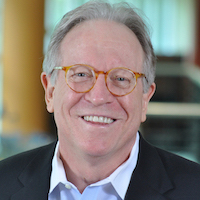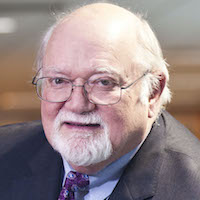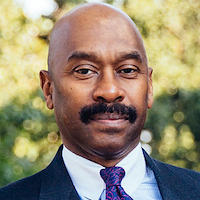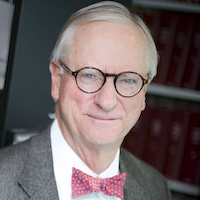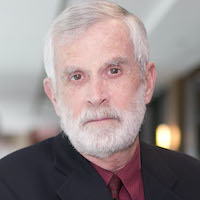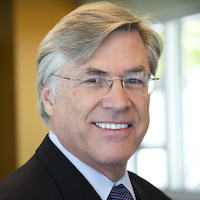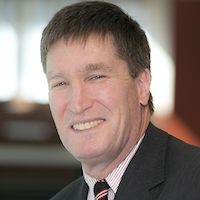A COMBINED 231 YEARS OF Emory Law teaching, mentoring, scholarship, and camaraderie will be recognized this spring as some of the law school’s most influential faculty members retire from teaching.
Among them are a former Emory Law dean and a former Emory Law interim dean, teaching award winners, former NITA directors, and a journal editor. They share a common thread of dedication to advancing the rule of law. The school is actively hiring for numerous faculty positions, including endowed professorships as the law school approaches this faculty transition with the strategic priorities in mind. Dean Mary Anne Bobinski has outlined a hiring process that recruits faculty with scholarly impact from eminent institutions around the globe and at all levels of their academic careers. The professors who have allowed us to highlight them herein, however, have contributed to the expansion of hundreds of minds, the forging of thousands of relationships, and the growth and flourishing of this leading national law school. Their contributions will inspire current and future Emory Law faculty members in the decades ahead.
Morgan Cloud
Charles Howard Candler Professor of Law
“To [discuss my best memories here] would require more words than could be possibly included in my story yet would surely be woefully incomplete. Over the course of four decades, I have countless ‘best memories’ of Emory colleagues (both faculty and staff) at the law school and the university, as well as with our students and alums.” For thirty-nine years, Morgan Cloud has taught and written about privacy law, constitutional criminal procedure, white collar crime, criminal law, and constitutional theory at Emory Law. His numerous scholarly articles have been published in leading journals, including the Stanford Law Review, the University of Chicago Law Review, the Southern California Law Review, and the UCLA Law Review. Cloud has been a distinguished visiting professor at universities in the United States and Europe. In Europe he has been a German Marshall Fund distinguished guest lecturer and has taught courses on Corporate Crime in a Global Economy, constitutional theory, and United States law at the University of Konstanz Law School in Germany, at the Central European University in Budapest, Hungary, and at the European Business School in Germany. He has lectured at various universities, including the University of Heidelberg and the University of Paris, Pantheon Sorbonne. Before joining the Emory faculty, Cloud was a trial lawyer and litigator in Florida and California, litigating cases throughout the United States. He served as a program director for the National Institute for Trial Advocacy for more than twenty years and has lectured to practicing attorneys around the country about ethics, trial practice, civil litigation, and evidence. He has served as chairperson of the Section on Litigation of the Association of American Law Schools. He serves on the advisory board of the Green Bag, a journal devoted to legal history and legal policy issues. “In some ways we accomplished more than I ever imagined possible when my family joined the Emory community; in others — not even close.”
A. James Elliott 66L
Professor of Practice
A. James Elliott practiced law in Atlanta with the firm of Alston & Bird for twenty-eight years prior to returning to Emory. He is a past president of the State Bar of Georgia and of its Young Lawyers Division. He has served on several Supreme Court commissions dealing with professionalism and lawyer discipline. Professor Elliott is a co-founder of Georgia’s legal services program, which has provided legal services to almost one million poor Georgians, and of Georgia’s mandatory IOLTA program, which has raised $100,000,000 for legal charities. He is a fellow of the American College of Real Estate Lawyers, as well as the American and Georgia Bar Foundations. In 2012 Professor Elliott received the University’s Emory Williams Distinguished Teaching Award. In 2017, Elliott was honored by the Committee to Promote Inclusion in the Profession of the State Bar of Georgia with the Randolph Thrower Lifetime Achievement Award. The Randolph Thrower Award recognizes an outstanding individual who has dedicated his or her career to providing opportunities that foster a more diverse legal profession for members of underrepresented groups in Georgia. Robert Schapiro, former dean, said of Elliott, “Jim has long been a leader in promoting diversity and inclusion. Through his commitment to this vital goal, as well as through his lifelong dedication to providing access to justice, he represents the highest ideals of the legal profession.”
James A. Hughes
Associate Professor of Law
As interim dean of Emory Law from September 2017 through July 2019, Hughes ushered the law school through a time of great transition, bridging the gap between the tenure of Deans Robert Schapiro and Mary Anne Bobinski. He stepped into the role with the calm-headedness and aplomb that are among his hallmark personality traits. A thirty-year member of the faculty, Hughes has seen more than most and really experienced the transformation of the law school, through recessions and boons, trying and unifying times. He reflects, “The changes to the law school over the past thirty years are monumental. The law school’s national and international profiles have increased dramatically, along with its reputation. The range and depth of our curriculum has broadened to provide a much richer experience for our students, and it better prepares them for contemporary law practice. Importantly, the law school is much more diverse in every way. The breadth of scholarly inquiry has expanded dramatically with the addition of many exceptional faculty. The racial, ethnic, and gender makeup of faculty, students, and staff is far more inclusive. One might say, if in 1992 I arrived at Emory Law 1.0, today it is Emory Law 5.0.” Hughes was selected as the Most Outstanding Professor by the Emory Student Bar Association (2002) and as Professor of the Year by the Black Law Students Association (2005). In addition to serving as associate dean for academic affairs at the school (2002–2006 and 2014–2017), Hughes served as vice dean of Emory Law from 2006 through 2011. His extensive service to the Emory community includes serving in the University Senate, University Faculty Council, and numerous law school and university committees. Regarding his impact, he says, “I would not be so presumptuous as to assume that I would have a lasting impact on the institution. However, I would hope that I have inspired and had a positive impact on my students, that I have been a good colleague to my friends on the faculty and staff, and that I have brought commitment and integrity to all of my work on the law school’s behalf.”
David F. Partlett
Asa Griggs Candler Professor of Law
David F. Partlett’s sixteen-year career at Emory (including a stint as dean from 2006 to 2011) followed an extensive career in his home country of Australia. “After my time at UVA I returned with [my wife] Nan to Australia. I wanted to do work at the Australian Attorney-General’s Department on legislation being developed in the Human Rights Section on Racial Discrimination and Human Rights. While doing that work the dean of the Australian National University (ANU) called me to teach Torts on an adjunct basis. Much of tort law was about to disappear with the introduction of a compensation scheme for personal injuries. Someone had to teach the dying area. I found that I loved my teaching and my interaction with my students. When I had completed my work at the attorney general’s and at the Australian Law Reform Commission, where I led a research team, I was keen to combine my research and writing with teaching. The life of the mind has a great allure. I was lucky to be invited back to take a faculty position at the ANU. Hence my 44-year career commenced.” Partlett says he came to Emory to make a highly reputed school even better. He had been at other law schools in the United States that had thrived in large part because of their superlative student/faculty relations and had learned that student experience needed to be taken seriously. At Emory he found a similar dedication to classroom teaching, but students did not feel as tightly knitted to the mission of the school and became disconnected from the institution upon graduation. “I think we improved student engagement during my time,” he says. “We set a continuing structure that valued alumni’s voices. During my time we were able to recruit outstanding faculty and retain many who shared the vision of Emory.” The law school became more comfortable as a unit of the wider university, he says. “The Great Recession was not a friend to ambitious plans, but I think we built those pillars deep. I’m eternally grateful that I had such a fulfilling career.”
Michael J. Perry
Robert W. Woodruff Professor of Law
While an undergraduate at Georgetown University (1964 –1968), Michael Perry decided to attend law school. It was a time of civil rights marches and demonstrations. He wanted to become a civiI rights lawyer. While a law student at Columbia University during the early 1970s, he decided to become a law professor. He had come to understand that a career as a law professor — rather than as a practicing lawyer — would give him the opportunity to delve much more deeply into the issues and controversies that greatly interested him. Perry, who was born and raised in Louisville, Kentucky, received his AB from Georgetown University (1968) and his JD from Columbia University (1973). After graduating from law school, Perry served as a law clerk, first, to US District Judge Jack B. Weinstein (1973 –1974) and, a year later, to US Circuit Judge Shirley M. Hufstedler (1974 –1975). “Happily, I’ve been able to achieve all that I hoped to achieve when, in the summer of 2003, I became a member of the law faculty at Emory University,” Perry says. “As a Robert W. Woodruff Professor of Law, I’ve been able to devote a major part of my time to my scholarship; I’ve also been able to teach the courses that complemented my scholarship. In my twenty years at Emory Law, I’ve written six books, the final of which — titled Interrogating the Morality of Human Rights — is scheduled to be published in the summer of 2023.” A recent issue of Emory Law Journal was dedicated to Perry as a festschrift publication. In the foreword to this publication, Professor John Witte wrote about Perry’s “characteristic empathy for the needs and suffering of others and his generous charity” as well as his “insistence on doing the big things in life alongside his beloved wife Sarah.”
Timothy P. Terrell
Professor of Law
“My experience on debate teams in high school and college made me realize that issues of public policy were of particular interest to me. Law school seemed the most direct — and intense — route for continuing and expanding that ambition.” Timothy P. Terrell has three distinct areas of teaching and scholarly reputation: legal writing, legal ethics, and legal theory. He has published extensively on all these topics, and frequently conducts continuing legal education programs on them as well. Concerning legal writing in particular, he is, among law faculty nationwide, the leading presenter of programs for practicing lawyers and judges, not just in the United States, but around the world. He has consulted often for law firms on issues of legal ethics and has served on numerous occasions as an expert witness in litigation involving issues such as conflicts of interest, confidentiality, and lawyer malpractice. Regarding legal writing, Terrell has for more than a decade conducted the writing and editing portion of the training program for new appellate judges at NYU Law School’s Institute of Judicial Administration. In addition to presenting programs around the country to law firms and bar associations, he is the primary consultant on legal writing to the international association of law firms called Lex Mundi and has conducted programs at its member firms around the world. He is the coauthor of a popular text on legal writing, entitled Thinking Like a Writer: A Lawyer’s Guide to Effective Writing and Editing (3d ed., 2008, Practicing Law Institute). “I have been deeply gratified by the positive feedback I have received from judges, lawyers, and law students concerning the substance and structure of the legal writing training I have provided — not only in the US, but in many other countries as well,” he recalls. “Introducing audiences to the deeper concepts of excellent writing feedback has been the unusual hallmark of my presentations.” And he’s still going. He has one scholarly project that he hopes to continue to develop after retirement: a book on the structure underlying philosophical reasoning.
Paul J. Zwier II
Professor of Law
Paul J. Zwier II is one of the nation’s most distinguished professors of advocacy and skills training. His decision to study law was “part calling and part practicality.” He was a history and philosophy major at a small religious college in Michigan where he was advised to read Gideon’s Trumpet and To Kill a Mockingbird, and found the lawyers in these stories used knowledge and skill to make a real difference. Zwier is the former director of public education for the National Institute for Trial Advocacy (NITA) and has taught and designed public and in-house skills programs in trial advocacy, appellate advocacy, advocacy in mediation, motion practice, negotiations, legal strategy, e-discovery, supervisory and leadership skills, and expert testimony at deposition and trial for more than 20 years. Zwier has taught advocacy skills to international lawyers and judges around the world, and, in 1998, Zwier received NITA’s Prentice Marshall Award. He says that over his nearly 20 years at Emory, he was continually amazed at the commitment, passion, and enthusiasm of its law students. He also built relationships with several colleagues that have affected him personally and professionally. He says fellow Woodruff Professor Martha Albertson Fineman “tolerated my questions and misunderstandings about vulnerability theory, which I still find provide some of the most important insights to my work, whether in dispute resolution, and in my rule of law work.” Then Dean Thomas Arthur, Morgan Cloud, John Witte, along with members of his hiring committee encouraged him to develop new areas of emphasis and scholarship during his first years. Professors Frank Alexander and Hal Berman offered warm welcomes. Professors Broyde, van der Vyver, and Abdullahi Ahmed An-Na’im provided inspiration for new collaborations. And David F. Partlett “has been a special colleague and friend who has shared drafts, coauthored articles, and taught me much, especially in the areas of remedies, law and religion, and torts. We have also fervently discussed the issues of rule of law and international politics, grandchildren, and travel, often well into the night. I have shared good conversation and wine with he and his wife Nan from France to Poland, to Atlanta, and back.”
Email the Editor 